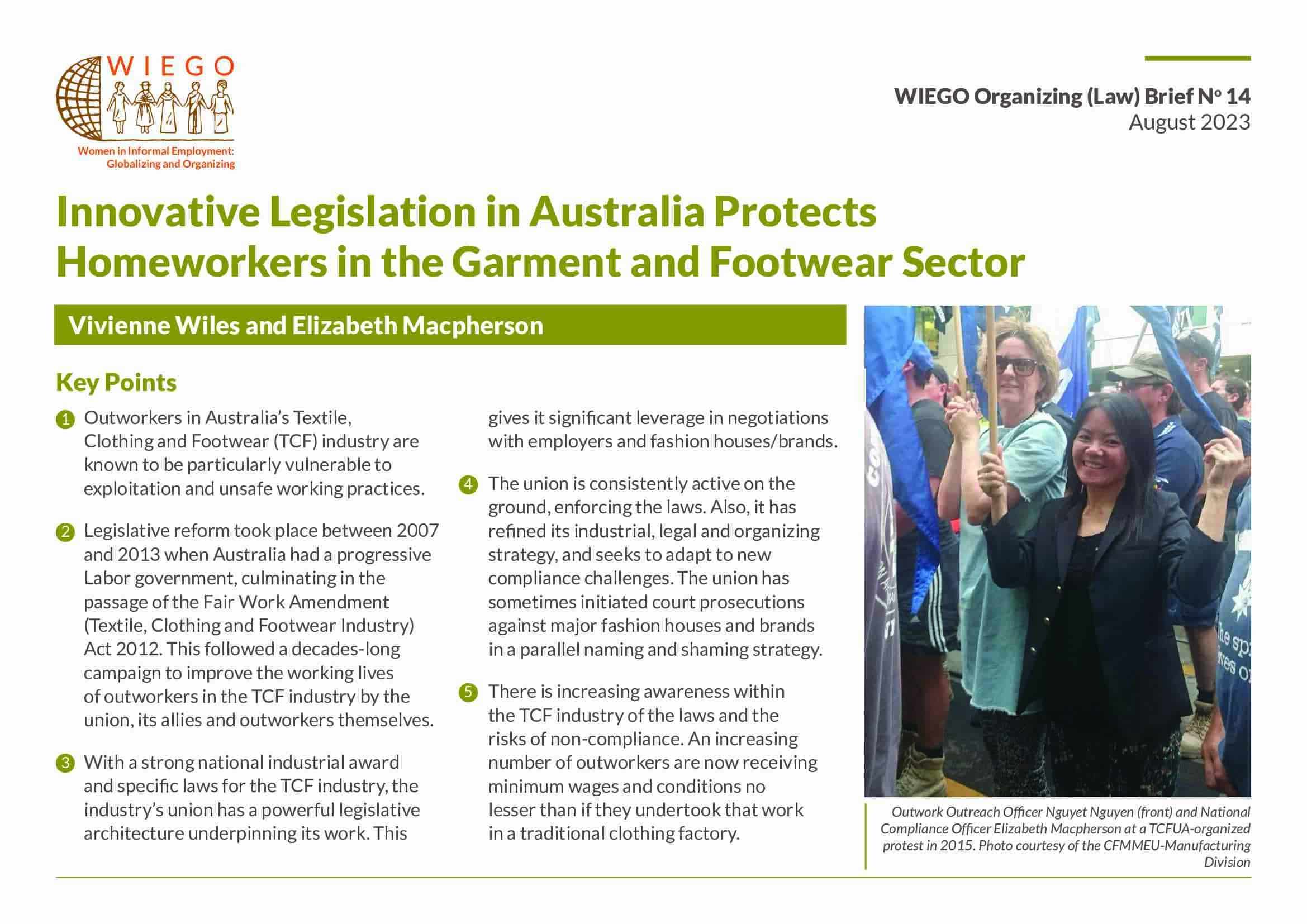Innovative Legislation in Australia Protects Homeworkers in the Garment and Footwear Sector
This brief describes the struggle by Australia's Textile, Clothing and Footwear industry union (TCFUA) together with allies for national homeworker (locally referred to as outworker) legislation, which was promulgated in March 2012. It analyzes the
innovative aspects of supply chain legislation and how it has been enforced.
Key Points
Outworkers in Australia’s Textile, Clothing and Footwear (TCF) industry are known to be particularly vulnerable to exploitation and unsafe working practices.
Legislative reform took place between 2007 and 2013 when Australia had a progressive Labor government, culminating in the passage of the Fair Work Amendment (Textile, Clothing and Footwear Industry) Act 2012. This followed a decades-long campaign to improve the working lives of outworkers in the TCF industry by the union, its allies and outworkers themselves.
With a strong national industrial award and specific laws for the TCF industry, the industry’s union has a powerful legislative architecture underpinning its work. This gives it significant leverage in negotiations with employers and fashion houses/brands.
The union is consistently active on the ground, enforcing the laws. Also, it has refined its industrial, legal and organizing strategy, and seeks to adapt to new compliance challenges. The union has sometimes initiated court prosecutions against major fashion houses and brands in a parallel naming and shaming strategy.
There is increasing awareness within the TCF industry of the laws and the risks of non-compliance. An increasing number of outworkers are now receiving minimum wages and conditions no lesser than if they undertook that work in a traditional clothing factory.
View list of all: Organizing Briefs

